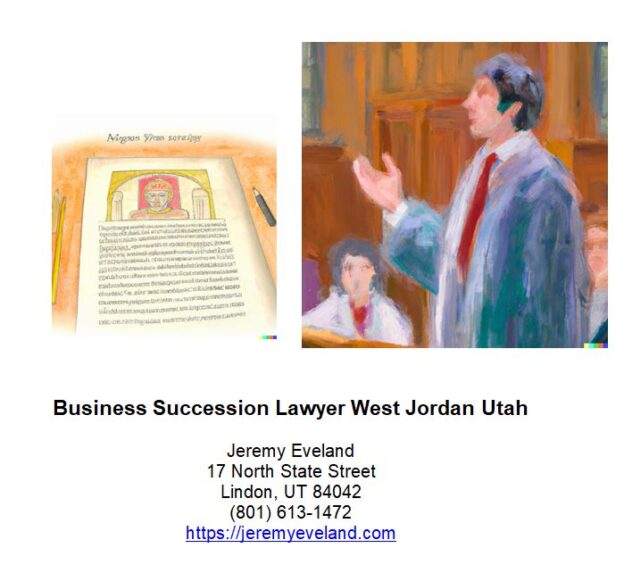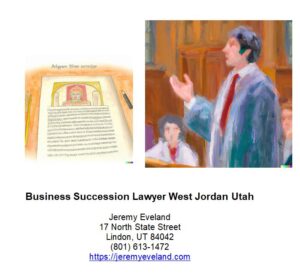Cook Island Trust Lawyer
A Cook Island trust is a popular form of asset protection trust used by people in the United States and other countries around the world. Like other trusts, the Cook Island trust is a legal entity that allows the settlor (the person creating the trust) to transfer assets to the trust and protect them from creditors, lawsuits, and other legal action. The Cook Island trust also offers additional benefits, such as tax advantages and the potential for asset growth.
The process of drafting a Cook Island trust can be complicated and requires the help of an experienced lawyer. A lawyer can guide the settlor through the process and ensure that the trust is properly drafted and set up. A lawyer can also provide advice on how best to structure the trust and any additional steps that may be needed to protect the trust assets from creditors, lawsuits, and other legal action.
When drafting a Cook Island trust, the lawyer will first need to review the settlor’s financial situation. This includes reviewing the settlor’s assets, liabilities, and other financial information. The lawyer will also need to consider the settlor’s estate planning objectives and any other relevant factors.
Once the lawyer has completed the review, they will need to review the Cook Islands Trust Deed. This document sets out the rules, regulations, and responsibilities of the trust. The lawyer will need to advise the settlor on any additional steps that may be needed to ensure the trust is set up properly.
The lawyer will then need to ensure that the trust is properly funded. This may involve transferring assets from the settlor to the trust, setting up an LLC to hold the trust assets, or making any other arrangements necessary to ensure that the trust is properly funded. The lawyer may also need to advise the settlor on any additional fees, such as transaction fees and courier fees, that may be required to transfer the assets to the trust.
Once the trust is properly funded, the lawyer will need to review and sign any additional documents that may be required to set up the trust. This includes any trust protector agreements, trust company agreements, and any other documents necessary to ensure the trust is properly set up.
The lawyer will also need to advise the settlor on any additional requirements that may be necessary to ensure the trust is in compliance with the Cook Islands Trust Law. This may include conducting due diligence on any offshore trustees, conducting an anti-money laundering (AML) review, and filing any required documents with the Cook Islands Trust Office.
Finally, the lawyer will need to advise the settlor on any legal action that may be taken against the trust. This may include filing for a court order to freeze the trust assets, suing any creditors that may be attempting to collect on the trust assets, or taking other legal action to protect the trust assets from creditors and lawsuits.
By using a lawyer to draft a Cook Island trust, the settlor can be sure that the trust is properly set up and that their assets are properly protected. The lawyer will be able to provide the settlor with valuable advice on how to structure the trust and any additional steps that may be needed to ensure the trust is in compliance with the Cook Islands Trust Law. In addition, the lawyer can provide advice on any legal action that may be taken against the trust, such as filing for a court order to freeze the trust assets or taking other legal action to protect the trust assets from creditors and lawsuits.
Asset Protection with a Cook Island TrustWhat is an Offshore Trust?
An offshore trust is a type of trust that is located outside of the settlor’s home country, typically in a jurisdiction with favorable tax and legal laws. Offshore trusts are commonly used for asset protection, estate planning, and tax planning, among other uses. An offshore trust can be created in many different countries and jurisdictions, including the Cook Islands.
Benefits of a Cook Islands Trust
A Cook Islands trust, also known as an asset protection trust, is an offshore trust that is located in the Cook Islands. The Cook Islands offers a variety of benefits that make it an attractive option for asset protection. First, the Cook Islands has a well-developed trust law that provides extensive protection to the settlor and the trust assets. The trust assets are also protected from the jurisdiction of foreign courts and creditors, and the Cook Islands also has favorable tax laws. Additionally, the Cook Islands has a robust and experienced trust industry, with a variety of trust companies and trust administrators that can assist with the creation and management of a trust.
Legal Protection of a Cook Islands Trust
The Cook Islands provides a variety of legal protections for the trust assets. First, it is important to note that the trust assets are protected from the jurisdiction of foreign courts and creditors. In addition, the Cook Islands has a number of laws that provide additional protection to the trust assets. For example, the Cook Islands Trusts Act states that the settlor is not liable for any debts or other obligations of the trust, and that the trust assets are not subject to any claims or legal actions. Additionally, the Cook Islands has a fraudulent conveyance law, which prohibits the transfer of assets in order to avoid a creditor or legal action. Lastly, the Cook Islands has a law that prohibits legal duress, which is when a person is forced to enter into a contract or agreement under threat.
Asset protection is an increasingly important aspect of financial planning, and the use of an offshore trust, such as a Cook Islands trust, is an effective way to protect a person’s assets from legal risks. The Cook Islands offers a variety of benefits that make it an attractive option for asset protection, including a well-developed trust law, protection from the jurisdiction of foreign courts and creditors, favorable tax laws, and a robust and experienced trust industry. Additionally, the Cook Islands has a number of laws that provide additional protections for the trust assets, such as a fraudulent conveyance law and a law that prohibits legal duress. For these reasons, a Cook Islands trust is an effective way to protect a person’s assets from legal risks.
Different Trust Options
A Trust, generally, is a legal entity that can hold title to property. There are three parties to a Trust agreement: the Trustmaker who creates the Trust, the Beneficiary who receives the benefit of the property held in the Trust, and the Trustee who manages the Trust. The property that is transferred to and held by the Trust becomes the Trust principal. If you create a Trust within your Will, it is called a Testamentary Trust. If you create a Trust while you are alive, it is called an inter vivos or Living Trust.
While you are alive, you usually will receive all the income of the Trust and as much of the principal as you request. Upon your death, the Trust assets are distributed to your Beneficiaries in accordance with your directions contained in the Trust agreement, or it can continue for specified purposes for a period of time.
The Advantages and Disadvantages of a Trust
The Main Advantages of a Living Trust:
• If you want or need to have someone else manage your property and pay your bills in case of illness or disability, the Living Trust is an ideal estate planning tool for you.
• Avoiding probate which can save time and money, especially if you own real estate in different states.
• Because a Living Trust is not filed in Court, its provisions are private. This differs from a Will, which must be filed with the Probate Court and becomes public.
• Reduction of delays in distribution of your property after you pass away.
• Continuity of management of your property after your death or incapacity/disability.
Disadvantages of a Living Trust
• There are usually more initial costs in setting up a Living Trust as compared to a Will because a Living Trusts generally requires more extensive, technical and complex drafting.
• “Funding”, which is the process of re-titling your assets in the name of your Living Trust, takes time.
• Administering the Trust can be expense depending on who is acting as Trustee.
Most Common Types of Trusts
Even though there are several different types of Trusts to choose from, you don’t have to be worried about picking the one that’s best for your needs and situation. Below, we’ve listed all the most common types of Trusts, explained in detail, so you know exactly what you need. First, you should understand the basic characteristics and parts of a Trust:
• Grantor – The Trust creator (also known as Settlor or Trustor)
• Trustee
• Beneficiary
Revocable Living Trusts
Revocable living trusts (inter vivos trusts) are created during the lifetime of the grantor. They can be modified or revoked entirely at the instruction of the grantor. The grantor often serves as the initial trustee. They can transfer property into the trust and remove property from the trust during their lifetime. A revocable trust becomes an irrevocable trust upon the death of the grantor.
Pros of a Revocable Living Trust
• Assets held in the trust at the time of death avoid the probate process. They can be distributed immediately. The use of a pour-over will transfers any un-transferred assets into the trust after death.
• Minimizes the value of the taxable estate because assets held in trust are not part of the deceased’s estate.
• Ensures financial privacy after death.
• Allows a trustee or successor trustee to manage assets if the grantor becomes incapacitated.
• Less costly to create than many other types of trusts.
• In community property states the inheritance provided by the trust is a separate asset of the beneficiary. It does not become part of community property unless the beneficiary makes it so.
• Allows the grantor to control how and when beneficiaries receive their inheritance.
Cons of a Living Trust
• A revocable trust does not provide asset protection. Because assets remain available to the grantor, they also remain available to the grantor’s creditors.
• A revocable trust may interfere with the grantor’s ability to access Social Security/Medicare assistance with long-term care expenses if needed later in life.
Example of a Revocable Trust: Totten Trusts
A “Totten trust” has also been called a “poor man’s trust.” This is due to a written trust document typically not being involved and it often costs the trust maker nothing to establish.
A Totten trust is created during the lifetime of the grantor by:
• Depositing money into an account
• Having the grantor named as the trustee
• Having the beneficiary be another individual or entity
A Totten trust uses financial institutions for bank accounts and certificates of deposit. A Totten trust cannot be used with real property. To create a Totten trust, the title on the account should include “In Trust For,” “Payable on Death To,” “As Trustee For,” or the identifying initials for each, “IFF,” “POD,” “ATF.” If this language is not included, the beneficiary may not be identifiable.
The gift is not completed until the grantor’s death or until the grantor passes along the account as a gift during the grantor’s lifetime. Until then, the beneficiary cannot access the money. Totten trust assets avoid probate and gift taxes.
Irrevocable Trust
An irrevocable trust can be created during the grantor’s lifetime (also called an inter vivos trust) or after death. Once assets and property are transferred into an irrevocable trust, the grantor cannot take them out of the trust. A trustee who is not the grantor manages the trust. Often the trustee is a financial professional or a business.
Pros of an Irrevocable Trust
• Assets held in the trust at the time of death avoid the probate process. A pour-over will transfer assets after death. Assets can be distributed immediately.
• Reduces and can even eliminate the cost of wealth transfer, such as probate fees, gift taxes, and estate taxes.
• Ensures financial privacy after death.
• Because assets in an irrevocable trust are unreachable to the grantor, they are also unreachable to creditors of the grantor and cannot be taken should the grantor lose a lawsuit.
• The grantor to controls how and when beneficiaries receive their inheritance.
• In community property states, the inheritance provided by the trust is a separate (not community) asset of the beneficiary and does not become part of community property unless the beneficiary makes it so.
Cons of an Irrevocable Trust
• It cannot be changed once it is implemented. Beneficiaries named in the trust will remain beneficiaries. Terms in the trust will remain the same even though the beneficiaries may have experienced changes in their lives.
• The grantor cannot access trust assets if they need them later.
• More costly to create than a living trust and requires legal help.
Example of an Irrevocable Trust: Irrevocable Life Insurance Trusts (ILET)
An irrevocable life insurance trust (also called an ILET) owns the life insurance policy of the grantor. The trust pays the life insurance premium each month, although the grantor funds the trust so that it can make the payments. The grantor’s estate is reduced in value as it transfers money to the trust to make these payments.
Usually, when a life insurance policy pays out, the named beneficiary receives a lump sum amount. That money could be seized by the beneficiary’s creditors, could get a beneficiary kicked off government assistance or Medicaid, or could be wasted if the beneficiary is not good at handling money. Depending on the terms of the trust, an ILET can distribute insurance money immediately or the ILET can hold and manage the money and distribute it over a period of time.
Trusts for Married Couples
Most people assume that when one spouse dies, the surviving spouse inherits everything. That is not always the case. Ensuring the remaining spouse is cared for is one reason why married couples choose to establish a marital trust.
When a couple chooses to set up a trust fund, they have two immediate decisions to make:
• Whether to set up a joint trust or separate trusts
• Whether the trust is just to transfer assets to the surviving spouse or whether it should also transfer assets to remaining heirs after the death of the second spouse
A joint marital trust is a single trust that covers both members of the couple. It transfers assets between the two spouses and no one else. It is less complicated to set up and maintain and less costly to create.
Separate Marital Trusts: AB Trusts and QTIP Trusts
Separate marital trusts, in particular AB trusts and QTIP trusts, offer some additional benefits:
• Both spouses can pass along assets to separate heirs (as well as the surviving spouse).
• The surviving spouse has use of marital assets and property for the remainder of their lifetime.
• The deceased spouse’s trust becomes an irrevocable trust upon death, which offers greater protection from creditors.
• While trust assets can pass to a surviving spouse tax-free, when the surviving spouse dies, remaining assets over the $11.2 million federal estate-tax exemption limit would be taxable to heirs. The second spouse can double their federal estate tax exemption through the use of a credit shelter trust (CST). (The amount of this tax exemption limit is only in effect through 2025.)
How Does an AB Trust Differ From a QTIP (Qualified Terminable Interest Property) Trust?
Upon the death of the first spouse, the marital estate is split in two. The “A part” of the trust is a survivor’s trust, which the surviving spouse can use as they see fit. The “B trust” is a bypass trust (or a credit shelter trust) that will transfer assets to heirs.
With an AB trust, the surviving spouse has some access to funds in the B portion of the trust, although they cannot change the terms of the B trust. The surviving may be able to use funds for health, education, or to keep a particular living standard. After death, funds from the B trust, and remaining funds from the A trust pass on to the couple’s heirs.
A QTIP trust is often the preferred marital trust when one or both spouses had children from a prior marriage and want to ensure their inheritance. The surviving spouse has their own trust but can only access the interest income from the B trust, none of the principal. Upon the second spouse’s death, the principal transfers to the heirs in full.
Trusts that Benefit Specific Types of People
In some situations, you may want a trust that benefits a unique circumstance. Typically this involves a minor or loved one with special needs, seeking to skip a generation, or controlling how the inherited money is used.
Special Needs Trust
Ordinarily, when a person is receiving government benefits like Medicare or Medicaid, an inheritance or financial gift could negatively impact their eligibility to receive such benefits. But Social Security rules allow a disabled beneficiary to benefit from a special needs trust, as long as they are not the trustee. They cannot control the amount or the frequency of trust distributions and cannot revoke the trust. Usually, a special needs trust has a provision that terminates the trust in the event that it could be used to make the beneficiary ineligible for government benefits.
Benefits of Special Needs Trusts
Special needs trusts can be used to provide for the comfort and happiness of a disabled person when those needs are not being provided by any public or private agency. The list is quite extensive and includes (but is not limited to) medical and dental expenses, education, transportation (including vehicle purchase), computer equipment, vacations, movies, money to purchase gifts, payments for a companion, and other items to enhance self-esteem.
Parents of a disabled child can establish a special needs trust as part of their general estate plan and not worry that their child will be prevented from receiving benefits when they are not there to care for the child. Disabled persons who expect an inheritance can establish a special needs trust themselves, provided that another person or entity is named as trustee.
Generation-Skipping Trust
A generation-skipping trust transfers assets from grandparents to grandchildren, or other persons at least 37 1/2 years younger than the grantor. It cannot be used to transfer assets to a younger spouse. It bypasses the prior generation in order to avoid estate taxes. Under the recent tax law changes, the tax exemption for this trust doubled, to $11.2 million for singles and $22.4 million for married couples. It will revert back to $5 million in 2026.
Spendthrift Trust
A spendthrift trust is an ordinary trust intended to transfer and protect assets. But it has one particular feature suited to a particular type of beneficiary. Typically, an heir can use their interest in the trust as collateral for loans. With a spendthrift trust, that is not allowed. Not everyone can manage a sudden influx of money. A grantor may choose to set up a spendthrift trust if their beneficiary has problems with drugs, alcohol, or gambling, or if they have repeatedly mismanaged their money.
Types of Charitable Trusts
Charitable trusts are established to allow a donor to leave all or a portion of their assets to a charity or nonprofit. A charitable trust can be set up during the donor’s lifetime (inter vivos) or after death (testamentary).
There are two main types of charitable trust:
• Charitable remainder trust (CRT)
• Charitable lead trust (CLT)
Depending on how the trust is structured it can reduce income tax, reduce or delay capital gains tax, reduce estate taxes or reduce gift taxes.
Charitable Remainder Trust (CRT)
A charitable remainder trust provides the donor with income from the investment of the trust assets during their lifetime. After the donor dies, the remaining assets are donated to the public charity or private foundation for which the trust was established. If the trust makes regular payments of a fixed amount, it is a charitable remainder annuity trust. If payments vary as a percentage of the trust’s principal, then it is called a “charitable remainder unitrust.”
Charitable Lead Trust (CLT)
A charitable lead trust first makes payment to the charity for a predetermined amount of time. When the term of the trust is complete, the remainder goes back to the donor or to their heirs.
Less Common Types of Trusts
Unique situations can call for specific types of trusts. Providing for a pet is a common reason to create a trust. You can also do things like protect assets from creditors and pass on family guns. In some cases, the courts can rule that a trust was implied even if it was never created.
Pet Trust
Many people consider their pets to be members of the family. A pet trust sets aside financial support for a pet and the trustee is responsible for ensuring that care is provided that meets the terms of the trust.
Asset Protection Trust
The purpose of an asset protection trust is to insulate assets from creditor attacks. Often set up in foreign countries, the assets do not always need to be transferred to the foreign jurisdiction. The trust is irrevocable for a certain number of years, then the assets are returned to the grantor, provided there is no current risk of creditor attack.
Gun Trust or NFA Trust
A gun trust is a revocable trust that holds title to a person or family’s guns. It allows the legal transfer of ownership of guns and gun accessories, like suppressors, that are restricted under the National Firearms Act. These are also called NFA trusts. A gun trust can hold title to other weapons as well and can protect a firearm collection.
Constructive Trust
Even though a formal trust was never made, a judge can find that an implied trust existed based on the intention of the property owner that certain property is used for a particular purpose or go to a particular person. A constructive trust is established by a court.
Cook Island Trust Lawyer Consultation
When you need legal help with a Cook Island Trust, call Jeremy D. Eveland, MBA, JD (801) 613-1472.
Jeremy Eveland
17 North State Street
Lindon UT 84042
(801) 613-1472
Recent Posts
The Utah Uniform Partnership Act



















